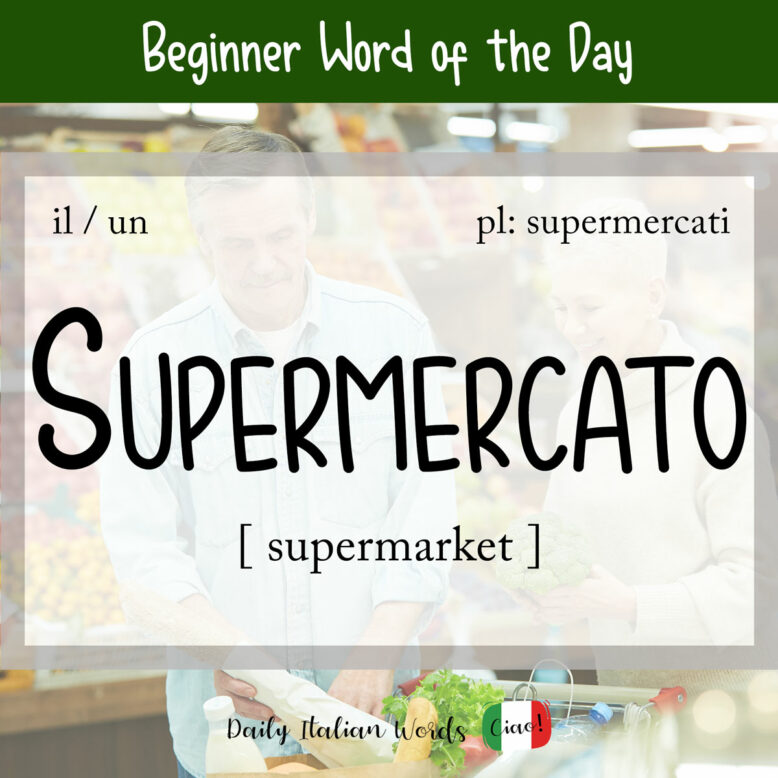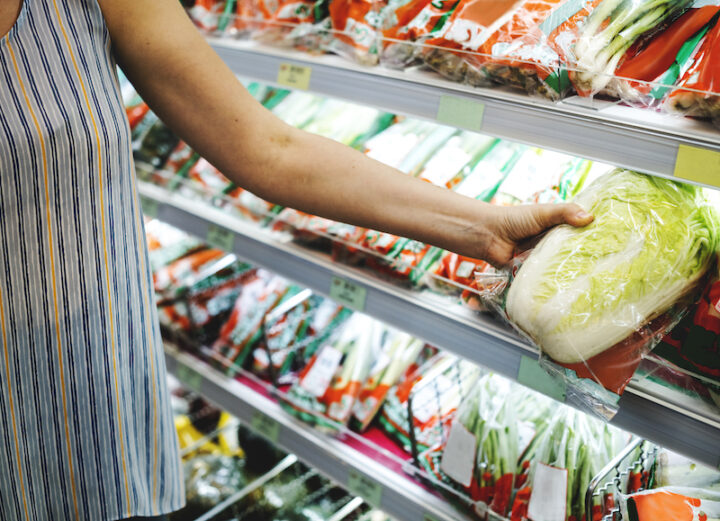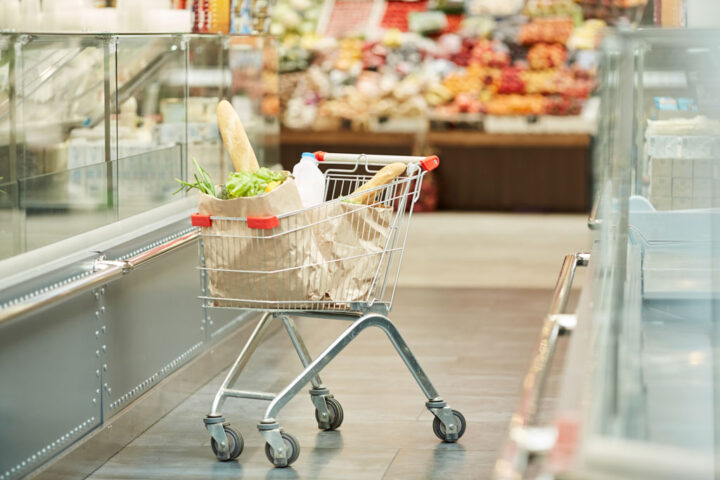The Italian word supermercato (masculine, plural supermercati), which is modelled on the English supermarket, is a combination of two parts: the prefix super- (meaning in this case excellent, top quality) and mercato (market).

Some of the major supermarket chains (catene di supermercati) in Italy are as follows:
Auchan
Bennet
Carrefour
Conad
Coop
CRAI
Esselunga
Eurospin
Famila
Lidl
Pam
Standa
Ora vado al supermercato a fare la spesa.
I’m going to the supermarket now to do the grocery shopping.
Most large Italian supermarkets are open seven days a week (sette giorni su sette) from morning to evening. However you will find that many supermarkets, particularly smaller ones in towns and villages, only open Sunday mornings or one Sunday a month.

When visiting a supermercato in Italy, you must weigh and price the fruits (frutta) and vegetables (verdura) you wish to purchase by placing them on an electric scale, pressing the corresponding key code, and attaching the adhesive price tag that prints out of the scale. For hygienic purposes, disposable plastic gloves (guanti di plastica) must be used when selecting your produce.
Many Italians prefer to buy fresh produce at the supermarket. The various reparti (departments) and banconi (counters) include:
- salumi e formaggi / salumeria = cured meats and cheese / delicatessen
- carni / macelleria = meat cuts / butcher counter
- pescheria = fish counter / fishmonger
- gastronomia = gastronomy
- forno / panificio = bakery
At the counters, all products are sold by weight, with the etto (100g) being the standard measuring unit.
Se vai al supermercato puoi prendere tre etti di prosciutto crudo al bancone dei salumi?
If you go to the supermarket, can you get three hundred grams of raw ham at the deli counter?
Other departments of a supermercato include:
- alimentari / prodotti alimentari = food / food products
- non alimentari = non-food
- surgelati = frozen food
- ortofrutta / frutta e verdura = fruits and vegetables
- latticini = milk / dairy products
- drogheria = various foods / groceries
- bevande = drinks
- casse = check-out

Also common in Italy is the ipermercato (superstore), a very large self-service store with a wide range of goods including groceries and general merchandise, and a large car park, typically situated outside a town. It can be considered the fusion of a supermarket and department store.
Another term you may come across is grande magazzino (department store). The plural Grandi Magazzini is the title of an Italian anthology-comedy film made in 1986. It recounts a day in a big department store and stars many popular Italian comedians.
Ieri ho rivisto Grandi Magazzini in televisione. Che buffo che è questo film!
Yesterday I watched Grandi Magazzini again on television. It’s such a funny film!
In the short clip below, a customer asks for a strong insetticida (insecticide) against vespe (wasps). Vespa is also the name of the iconic motor scooter, so when the employee show him how it works, the insecticide literally kills a vespa! (I know… Italian humour!)
Heather Broster is a graduate with honours in linguistics from the University of Western Ontario. She is an aspiring polyglot, proficient in English and Italian, as well as Japanese, Welsh, and French to varying degrees of fluency. Originally from Toronto, Heather has resided in various countries, notably Italy for a period of six years. Her primary focus lies in the fields of language acquisition, education, and bilingual instruction.


